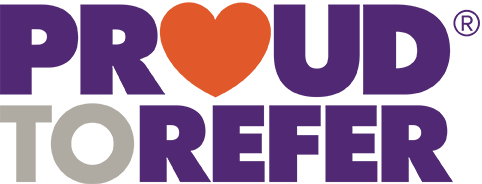Most HR managers know the dangers and costs of bringing on the wrong employees. The cost of a bad hire is high culturally and operationally. Are there things the interviewer misses that lead to a bad hire? What red flags should employers look for that indicate the risk of hiring a particular candidate is worse than the reward later on?
Watch for These Interview Red Flags
Candidates strive to present themselves in the best light possible. While most candidates are genuine and well-prepared, there are instances where red flags emerge during the interview process. Hiring managers must recognize these signals to make informed decisions about potential hires. Here are some examples to keep in mind.
Negative Talk About Previous Employers
A candidate who excessively criticizes or speaks negatively about their previous employers may be a cause for concern. While it’s natural for individuals to encounter challenges at work, constant negativity can indicate a lack of professionalism and an inability to handle workplace conflicts constructively. Employers should be cautious of candidates who blame others for their past challenges without taking any personal responsibility.
Lack of Preparation
Candidates who haven’t done their homework about the company or the role they are applying for might struggle to articulate specific reasons for their interest in the position. A lack of preparation suggests a lack of genuine interest in the company and can raise doubts about a candidate’s commitment and dedication.
Inconsistent Responses
Inconsistencies between a candidate’s resume and interview answers are significant red flags. Whether it’s conflicting details about past job responsibilities or gaps in employment history, consistency can indicate consistency or a lack of attention to detail. Employers should probe further to understand the reasons behind any inconsistencies.
Overemphasis on Compensation
While compensation is an essential factor for any job seeker, candidates who focus excessively on salary and benefits during the initial stages of the interview may be more interested in the perks than the actual job. Employers must assess a candidate’s passion for the role and the company culture rather than being solely motivated by financial rewards.
Lack of Self-Awareness
Candidates who struggle to identify their strengths and weaknesses or provide generic and rehearsed answers may lack self-awareness. Self-aware individuals understand their capabilities and areas for improvement, making them better equipped to contribute positively to a team.
Avoidance of Specific Questions
Candidates who avoid answering specific questions about their work experiences or provide vague responses may be trying to hide something. Employers should pay attention to how candidates handle challenging questions and their ability to communicate openly and transparently.
Unrealistic Expectations
A candidate expressing unrealistic expectations regarding career progression, promotions, or work-life balance may signal a lack of understanding of the industry or the company culture. Unrealistic expectations can lead to dissatisfaction and turnover, making it essential for employers to align candidate expectations with the reality of the role.
Here’s How to Hire Better—and Faster
Recognizing red flag interview answers is crucial for employers seeking to make informed hiring decisions. While these warning signs don’t automatically disqualify a candidate, they should prompt further investigation and consideration. PrideStaff Thousand Oaks is well-versed in the nuances of finding, screening, and hiring job candidates on your behalf. As a full-service recruiting firm, our teams apply their experience and insight to find you the right fit every time. Contact us today.



